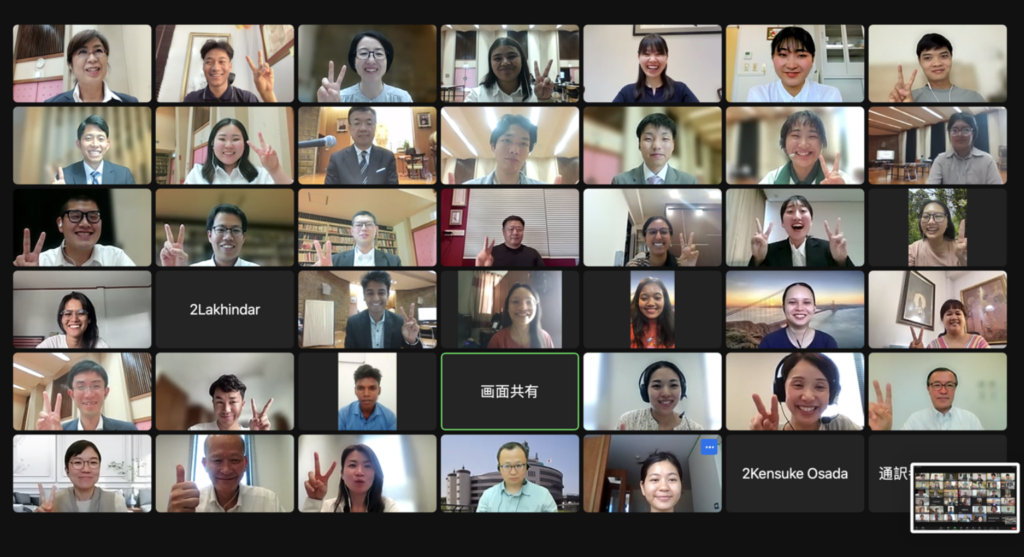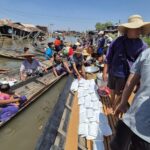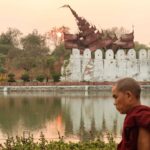“Engaged Buddhism and Inclusive Societies”
Tuesday, June 11, 2024
Co-organized by
International Network of Engaged Buddhists (INEB) & Gakurin Buddhist Seminary
Online Forum
The 2nd International Engaged Buddhist Youth Leaders’ Forum, co-organized by the International Network of Engaged Buddhists (INEB) and the Gakuin Buddhist Seminary, brought together Buddhist youth leaders from across Southeast, South, and East Asia.
The forum, held online on June 11, 2024, was a significant step in fostering dialogue and collaboration among young, engaged Buddhists. The event focused on the theme “Engaged Buddhism and Inclusive Societies,” addressing pressing global issues through the teachings of Buddhism.
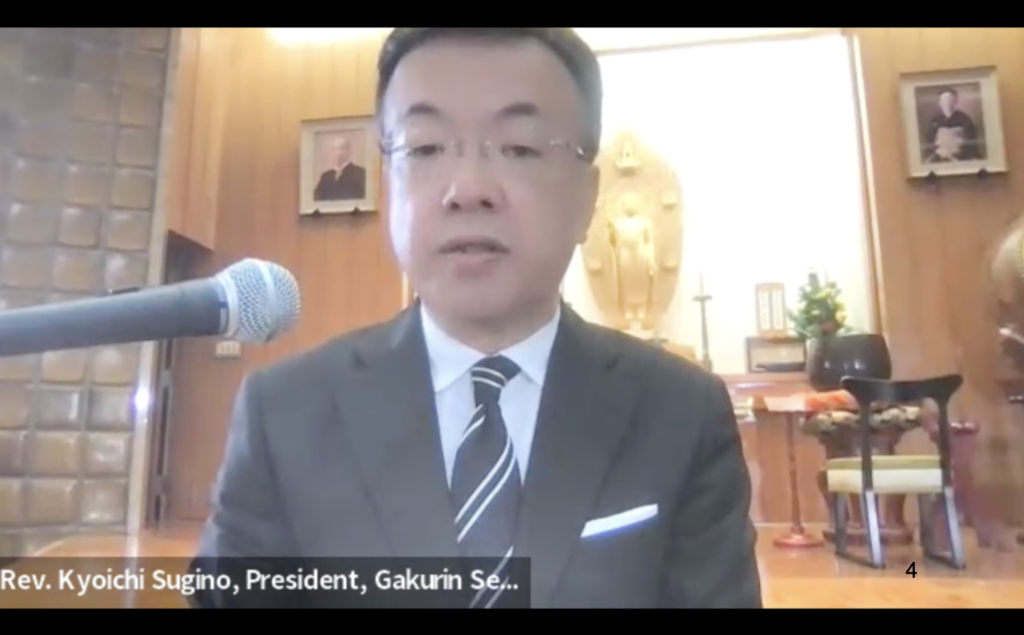
Keynote Speech by Rev. Kyoichi Sugino
Rev. Kyoichi Sugino, President of the Gakurin Buddhist Seminary, emphasized the application of the Four Noble Truths to contemporary challenges like war, poverty, social injustices, and environmental destruction.
He called for young Buddhists to be fluent in both religious and public languages to reinterpret Buddhist teachings for modern issues.
Rev. Sugino stressed inclusivity, support for refugees and migrants, and the promotion of peace and reconciliation in diverse societies, highlighting the critical role of engaged Buddhist youth leaders in shaping the future of global Buddhism.
Opening Speech by Somboon Chungprampree
Somboon Chungprampree, Executive Secretary of INEB, reflected on the influence of Western modernization on Asian societies, drawing from a passage by Prof. Hisashi Nakamura. He stressed the importance of young Buddhists learning from elders while navigating modern diversity and globalization complexities. He advocated for forming relationships across countries, cultures, and communities through dialogue and knowledge sharing, fostering mutual understanding and harmonious relationships.
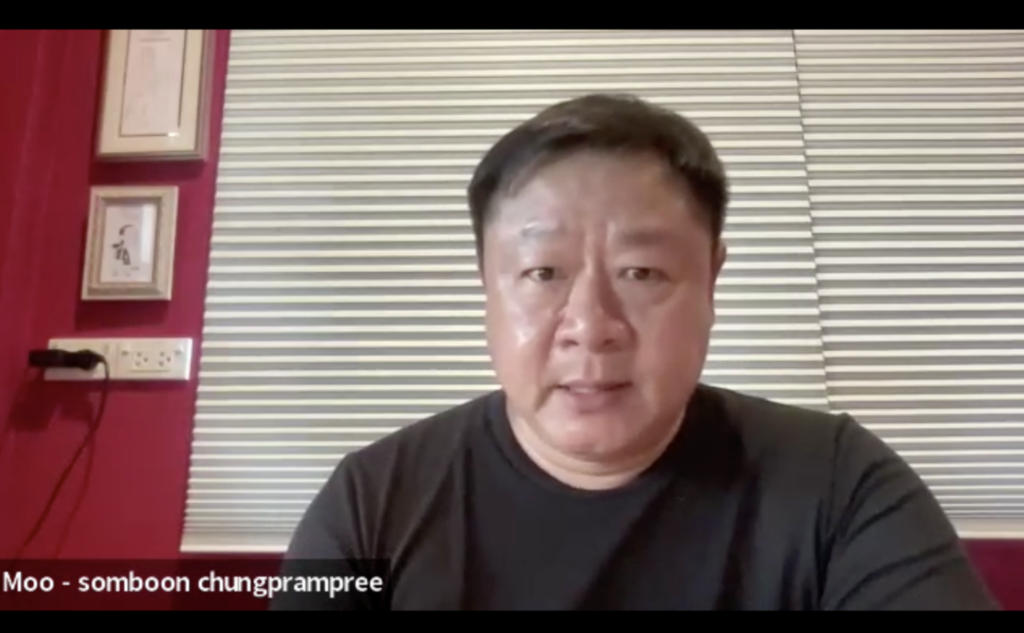
Perspectives on Buddhism and Pluralism
The session on “Buddhism and Pluralism” featured insights from different Buddhist traditions:
- Ekayana Buddhism: Rev. Dr. Masahiro Nemoto discussed the principles of Ekayana Buddhism, emphasizing the Bodhisattva Path and the practice of the Six Paramitas. He highlighted the concept of universal salvation and the importance of altruistic service, aligning with the ideals of an inclusive society.
- Theravada Buddhism: Anchalee Kurutach shared her experiences and initiatives like the “Sankha for Peace” project, which promotes dialogue and reconciliation among diverse faith leaders. Her work illustrated how Theravada Buddhism can contribute to pluralism through active engagement and reconciliation.
- Vajrayana Buddhism: Prashant Varma discussed the Vajrayana perspective on inclusion, critiquing modern notions of identity and advocating for a holistic approach that encompasses all forms of life. He emphasized reclaiming Buddhist principles to align with genuine inclusivity and pluralism.
Case Presentations
The forum showcased practical examples of engaged Buddhism in action:
- Welcoming Refugees and Migrants: Soe Htike San (Myanmar) and Praphaporn Piyaphatworasakun (Thailand) shared their experiences in supporting refugees and migrants, highlighting the need for compassion and inclusivity.
- Transforming Conflicts: Lakhindar Soren (India) and Sinthuja Makeswaran (Sri Lanka) discussed conflict resolution and peacebuilding in their countries, emphasizing dialogue and mutual understanding.
- Environmental Protection: Lavanya Prakash (Singapore) and Nguyen Hai Au (Vietnam) presented initiatives in environmental protection, drawing on Buddhist principles of harmony with nature.
Group Discussions and Sharing
Following the case presentations, participants broke out into small group discussions, diving deeper into the topics presented. These discussions allowed for more intimate exchanges of ideas and experiences, fostering a sense of community and collaboration.
In the sharing session, groups reconvened to present their insights and reflections. This segment was particularly valuable, as it showcased the diverse approaches and solutions proposed by the participants, reinforcing the forum’s theme of inclusivity and collective action.
Conclusion and Closing Remarks
The forum concluded with a summary and conclusion by facilitators. They recapped the key points discussed throughout the day and encouraged participants to continue their efforts in promoting engaged Buddhism and inclusive societies. Somboon Chungprampree and Rev. Kyoichi Sugino provided closing remarks, expressing gratitude to all participants and emphasizing the importance of ongoing dialogue and collaboration.
Analysis
Forum Highlights
- Dialogue and Learning: The forum facilitated dialogues among Buddhist youth leaders, creating an environment of mutual learning and understanding. Participants shared their experiences and explored Buddhist approaches to contemporary issues.
- Inclusivity and Peace: Discussions focused on promoting inclusivity and peace, emphasizing the importance of supporting refugees and migrants and fostering reconciliation in diverse societies.
- Environmental Sustainability: The forum also addressed environmental protection, drawing on Buddhism’s values of harmony with nature to propose sustainable approaches.
The 2nd International Engaged Buddhist Youth Leaders’ Forum was a resounding success, providing a platform for young Buddhist leaders to engage in meaningful dialogue and share innovative solutions to global challenges. The forum highlighted several key themes:
- Interfaith and Cross-cultural Dialogue: The diverse representation of Buddhist traditions and the inclusion of participants from various countries underscored the importance of interfaith and cross-cultural dialogue in addressing global issues.
- Inclusivity and Compassion: The case presentations demonstrated the practical application of Buddhist principles in supporting refugees, resolving conflicts, and protecting the environment, emphasizing the need for compassion and inclusivity in all efforts.
- Modernization and Tradition: The discussions reflected a balanced approach to modernization, acknowledging the influence of Western thought while reaffirming the relevance of traditional Buddhist teachings in contemporary contexts.
The forum successfully fostered a sense of community and collective responsibility among the participants, inspiring them to continue their efforts in promoting peace, inclusivity, and sustainability through engaged Buddhism. This event marked a significant step in building a global network of young Buddhist leaders dedicated to making a positive impact on the world.

